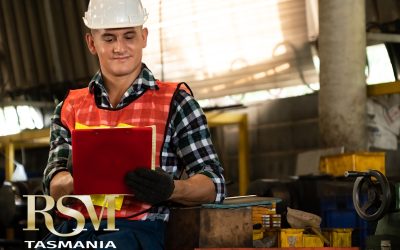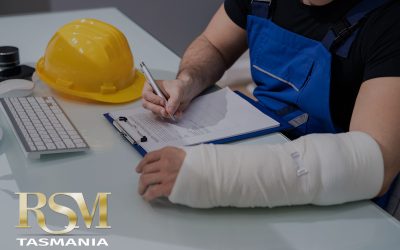How Seasonal Work in Tasmania Impacts Workers Compensation Claims
When most people think about seasonal work in Tasmania, they picture cherry picking in the Huon Valley, extra bar staff during summer festivals, or casual hands in tourism hot spots.
What they don’t often picture is the added layer of risk these short-term hires can bring to a business — especially when it comes to workers compensation insurance.
At RSM Tasmania, we help local businesses understand how seasonal work impacts their cover and why the right protections matter.
Why seasonal work is different
Seasonal staff are often:
-
- New to the industry — which means less training and higher chance of injury.
- Working under pressure — busy harvests and peak seasons can mean longer hours and fatigue.
- Temporary by nature — casual workers may not fully understand workplace processes or safety expectations.
Put those together, and the risk of a workplace injury increases.
Common seasonal claims in Tasmania
Some of the most common injury claims we see in seasonal industries include:
-
- Slips, trips, and falls (particularly outdoors in unpredictable weather).
- Musculoskeletal injuries from heavy lifting or repetitive movements.
- Cuts, burns, or other mishaps in hospitality settings.
- Stress and fatigue-related incidents during peak workloads.
What this means for employers
For businesses that rely on seasonal work, it’s crucial to have the right workers compensation cover in place.
A single injury claim can not only affect the injured worker but also disrupt operations at the busiest time of the year. Worse, being uninsured or underinsured could leave a business facing serious financial consequences.
That’s where advice from a local broker who understands Tasmania’s industries makes all the difference.
Protecting your seasonal workforce
If you’re hiring extra hands this season, here are a few smart steps to reduce risk:
-
- Provide a short but thorough induction for every worker, even casuals.
- Keep safety front of mind with clear signage and regular reminders.
- Rotate staff to reduce fatigue during long shifts.
Check your workers compensation policy covers all staff — including short-term and casual employees.
For more detailed guidance on your obligations as an employer, you can also refer to WorkSafe Tasmania’s workers compensation resources.
At RSM Tasmania, we’ve been helping local businesses manage their risks for nearly 20 years.
If you’d like more information specifically on workers compensation insurance, you’ll find practical insights at our dedicated site: wcomptas.com.au.
Because when your workforce is protected, your business is too.
Remember, this article is general in nature and doesn’t take into account your specific objectives, financial situation, or needs. For advice tailored to your circumstances, have a chat with us at RSM Tasmania Insurance Brokers Hobart.
Talk to Roger Hosie and stay ahead with RSM Tasmania’s insights.
Call Now! (03) 6244 7854, or email .




